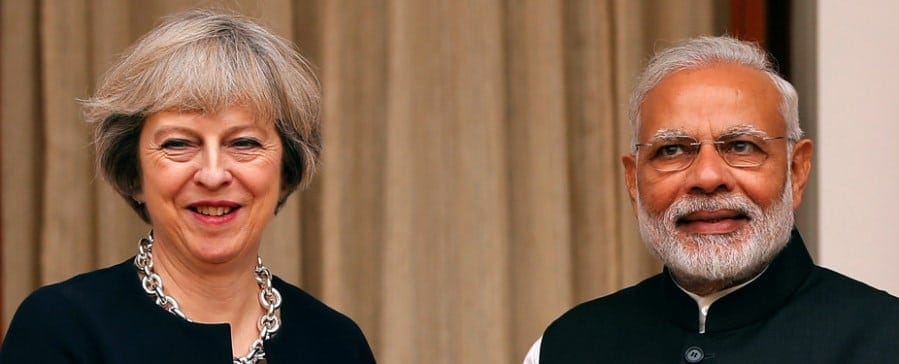Since the so-called Brexit, there has been a resurgence in the importance of the Commonwealth to the UK. This comes as the country begins to seek direct trade relationships with the outside world while it prepares to leave the European Union (EU).
Recently, British prime minister Theresa May spoke with confidence about the “desperate” desire by Commonwealth countries to form new trade deals with Britain.
The Commonwealth is a 52 member-state intergovernmental organisation with roots in the early 20th century, arising from the decolonisation of the British Empire. While not a legal union, member states unite voluntarily on the basis of their shared values, such as democracy, human rights and the rule of law. Importantly, these are supposedly underpinned by a shared history, culture and the English language.
Like May, her foreign secretary Boris Johnson sees a “bright future” in the Commonwealth. He argues that the UK can be a “force for good” through a renewal of trade relations after Brexit, in a world in which “democracy is in retreat”.
Others went as far as calling the Commonwealth the potential “saviour” for the United Kingdom, given the prospects of the new international reality it faces.
This optimism may be shared by the likes of Australia and Canada, which are big players in the Commonwealth and where the monarchy still looms large in the public imagination. But it is not shared globally.
In India and other nations such as in the Caribbean and Africa, for example, memory of the old empire is fading. The British Empire is also at times an emotive and controversial notion for some of these countries and their citizens.
All not well in the Commonwealth
The flurry of social media voices rejecting Britain’s Prince Harry on his recent visit to the Caribbean, using the hashtag #NotMyPrince, was a telling signal of a change in tone towards the Commonwealth.
Africa, some argue, has “moved on” from its countries being loyal members of the Commonwealth, and the road ahead for the UK in these relations will be a “bumpy” one.
The simple problem is that the Commonwealth’s various cultural expressions, even in the often unifying arena of sport, have become ripe for criticism because of historic injustices and legacy issues.
More seriously, members of the emergent populist left in South Africa are boycotting the 62nd Commonwealth Parliamentary Conference for 2016 in London. This is in protest in the memory of historic wrongdoing by the British colonial power.
The UK will increasingly face a symbolic and cultural obstacle in Africa: one of reputation. It faces the challenge of positioning the Commonwealth brand in a way that will not be viewed as paternalistic amid a rising tide of African nationalism with strong anti-imperialist undertones.
The scramble by the UK to reset trade relations will be met with suspicion. It is likely to be greeted by superficial and often ambiguous friendship or even indifference. This, of course, will not be the case with business elites. They have historic ties to London. But the UK can expect a frosty reaction from Commonwealth politicians exercising a new found sense of post-colonial confidence.
Interestingly, most of the Commonwealth had preferred the UK to stay in the EU.
Trade and investment, not paternalism
The UK can play an important role as a new strategic partner for Africa’s development through investment, not aid. But this will necessitate patient diplomacy. There are, for instance, opportunities for small and medium sized businesses in for example Lagos, Dar es Salaam and Johannesburg to connect and trade with the UK. But, the economic diplomacy required to realise this possibly ranks too low on the Foreign Office’s cost-benefit-analysis as it now crafts its post-Brexit agenda.
Africa needs investment and broad-based development, but this will not be easily tradeable for political alignment on the basis of some imaginary “commonwealth”. Africans cannot continue to live in the commons while Britain gets the wealth.
In its envisioned new developmental role, the UK will be competing with the likes of Germany, France and increasingly with China and India. Importantly, the latter two are already entrenched in the more recent (BRICS) -– Brazil, Russia, India, China and South Africa – bloc.
The UK will need more than historic familial ties to forge new trade deals. It will need to bring considerable resources and authentic friendship to the negotiation table.
![]() By Marius Oosthuizen, University of Pretoria
By Marius Oosthuizen, University of Pretoria
Marius Oosthuizen, Full time faculty, Gordon Institute of Business Science, University of Pretoria
This article was originally published on The Conversation. Read the original article.
TOP IMAGE: UK Prime Minister Theresa May can’t rely on her Indian counterpart Narendra Modi and others in the Commonwealth for unfettered trade support. (Reuters/Adnan Abidi)











